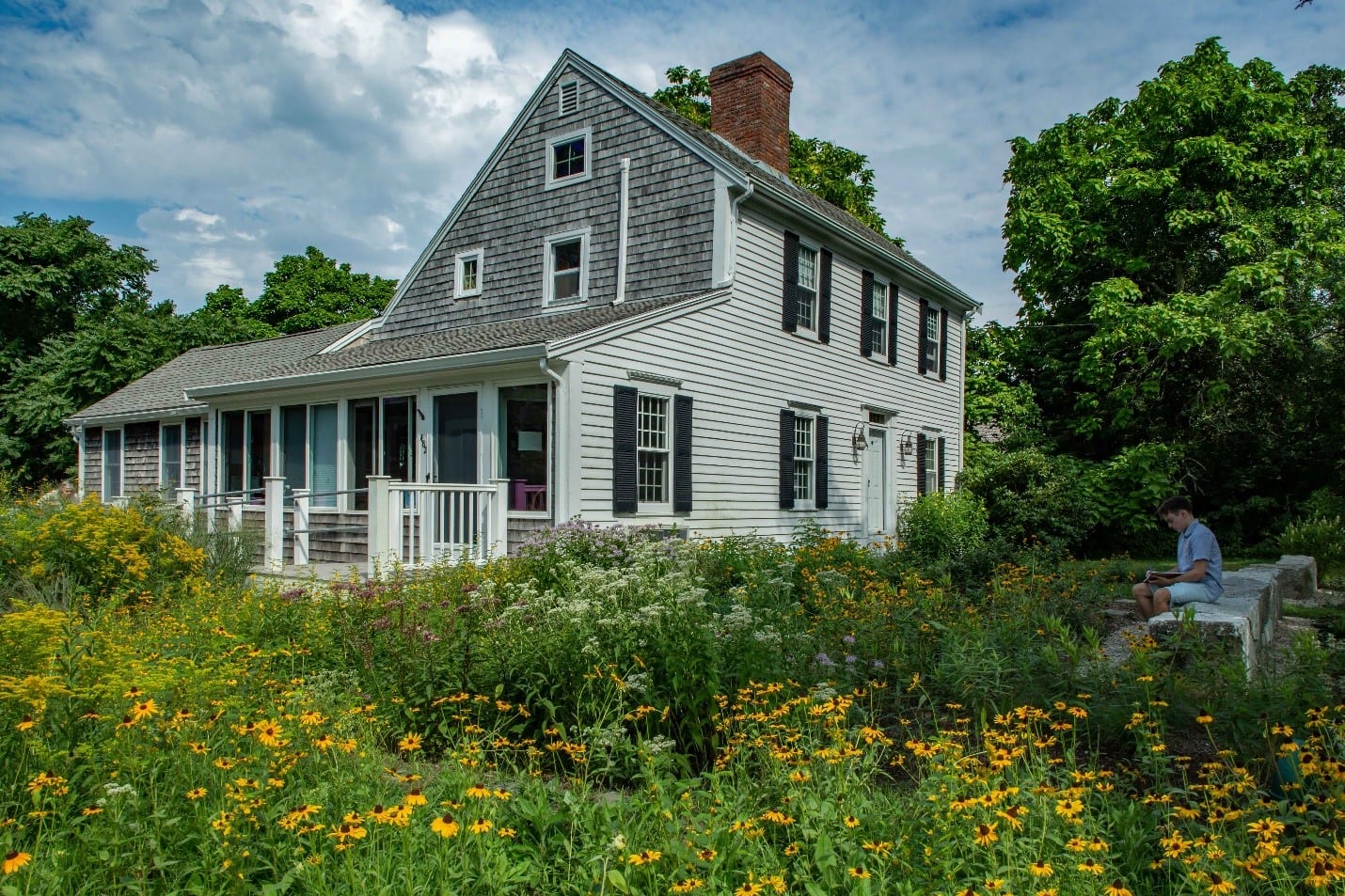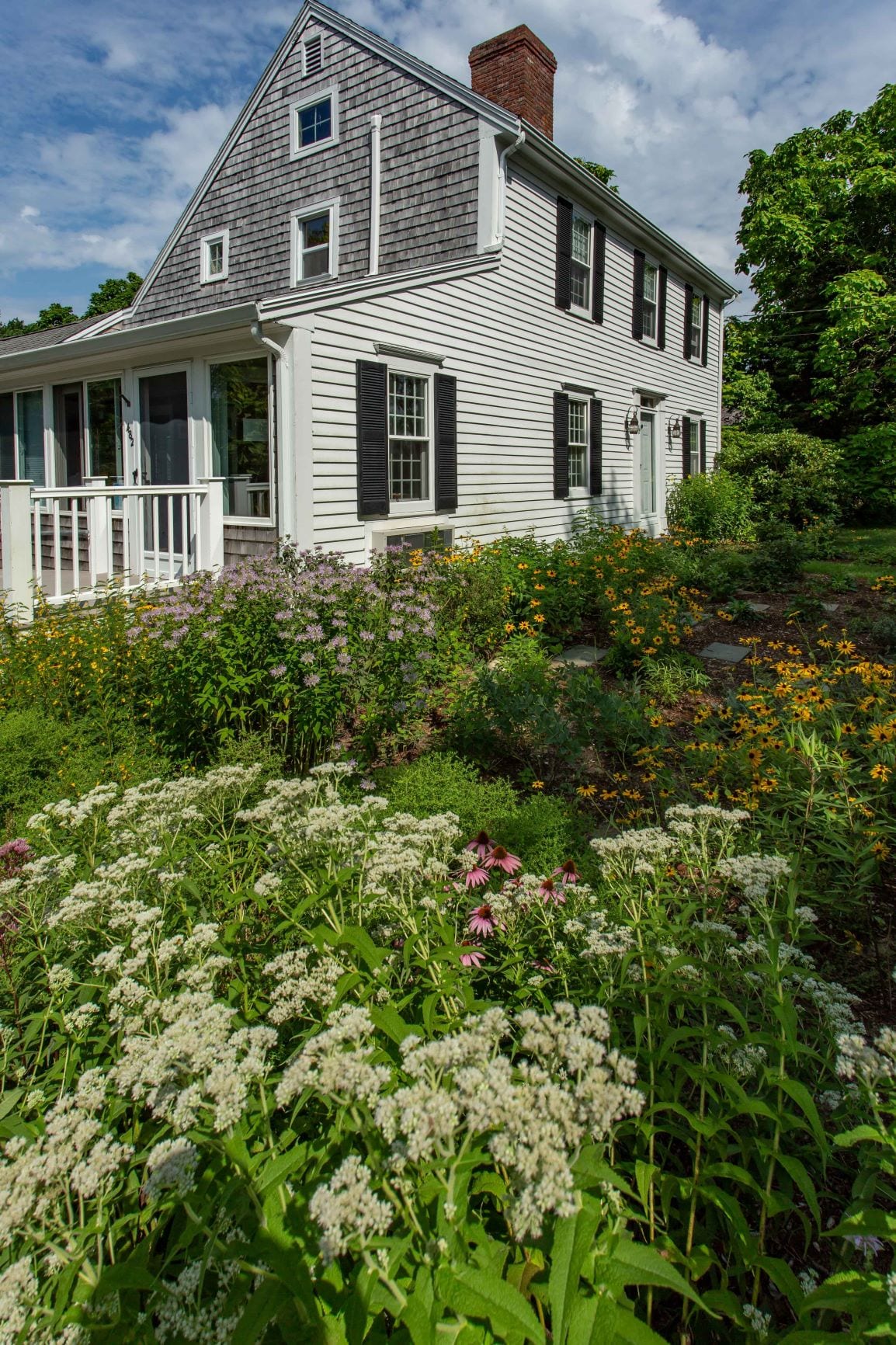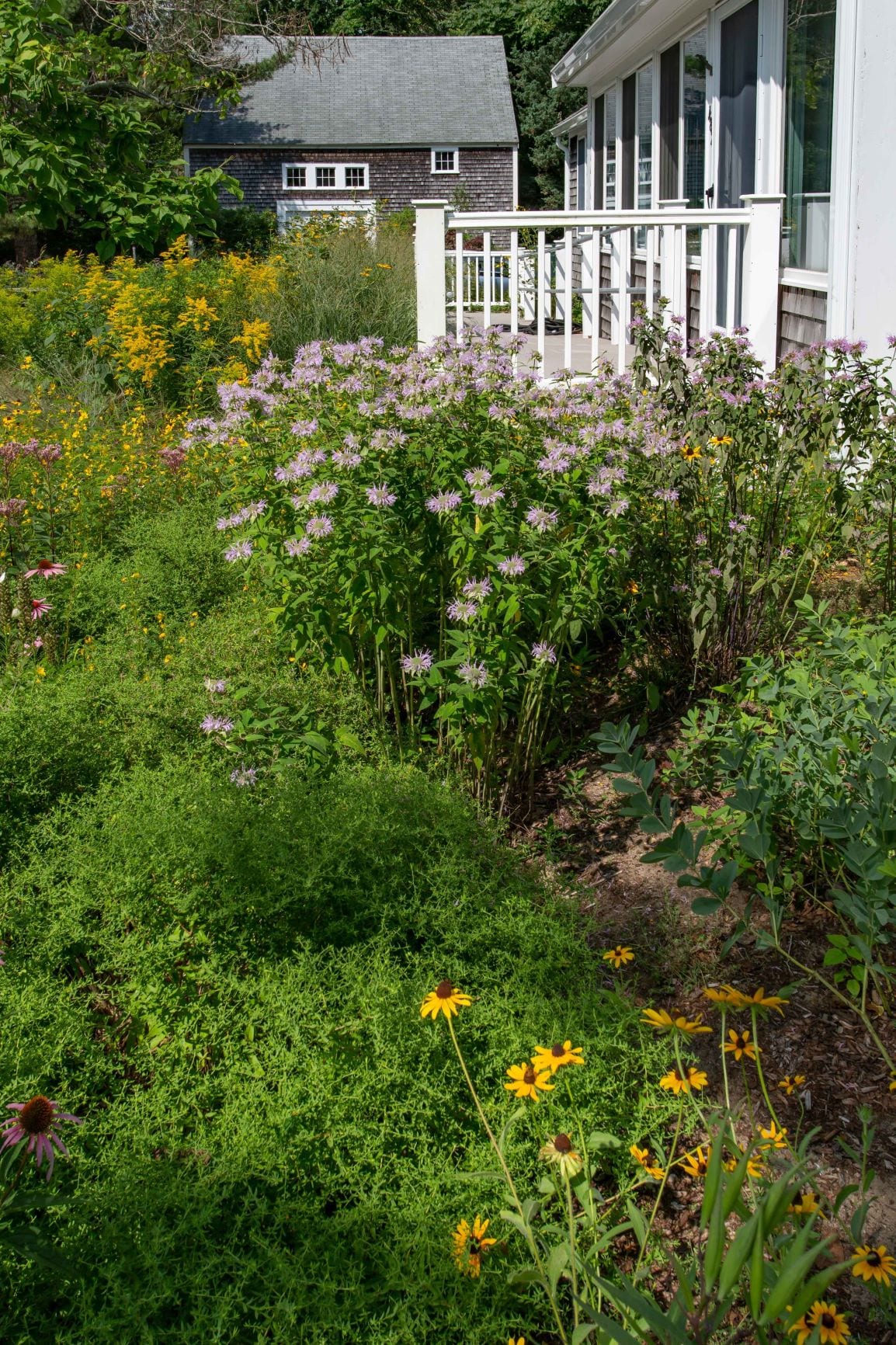Hosted by Kristin Andres
The Association to Preserve Cape Cod is an environmental advocacy organization located in Dennis, MA. We refer to our garden as APCC’s “living landscape.” With the design help of BlueFlax Design, the grounds serve as an evolving demonstration model for an eco-friendly Cape Cod landscape. It employs a diverse palette of native species that thrive without supplemental irrigation or fertilizers. Many species support native pollinators and other beneficial insects. The intentional, systematic replacement of lawn with diverse native plantings, in a highly visible location, serves as an inspiration to homeowners, institutions, and the local landscape industry that Cape-friendly landscapes can be both beautiful and ecologically sound.

Spring scene of the dry shade garden beneath a large catalpa tree that is composed of foam flower, lady fern, white wood aster, and the remnants from the earlier garden that include Solomon’s seal and bleeding heart.

A rain garden serves as an educational landscape feature to demonstrate the capture and infiltration of stormwater from roof runoff. Plant choices are pollinator favorites and include Joe-Pye weed, boneset, Liatris, fall aster ‘October Skies’, rose milkweed, and winterberry ‘Red Sprite’.
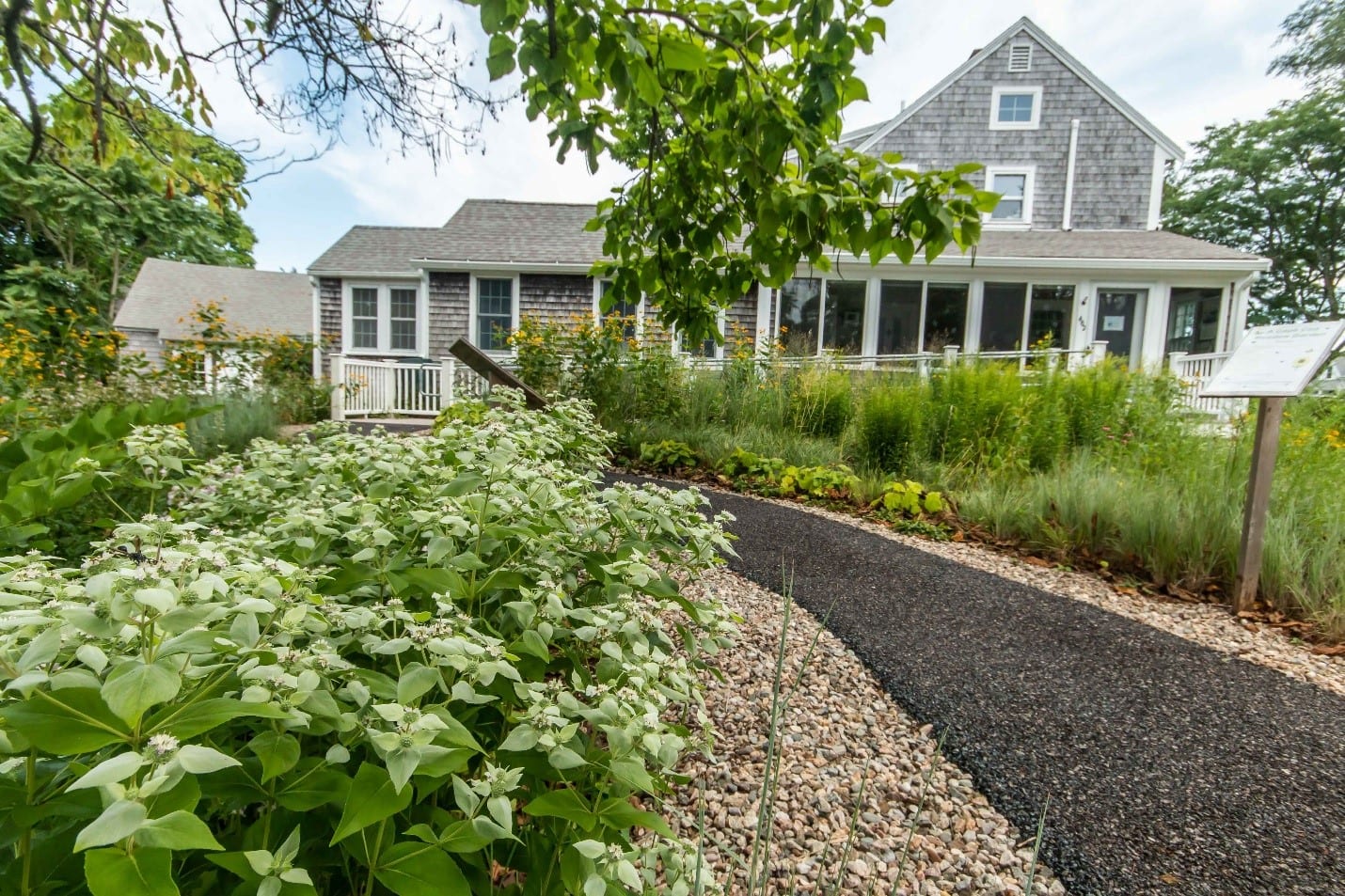
To demonstrate best management practices in stormwater management, APCC installed an asphalt alternative that is a permeable application. We chose Porous Pave®, which is made from recycled tires. For our project, we estimate about 300 tires were repurposed. The surface itself is only a couple of inches thick and beneath it is 10 inches of ¾ inch stone as you see in the photo. The water flows through the porous pave and slowly infiltrates through the stone and into the ground. Watch a video showing how it’s installed.
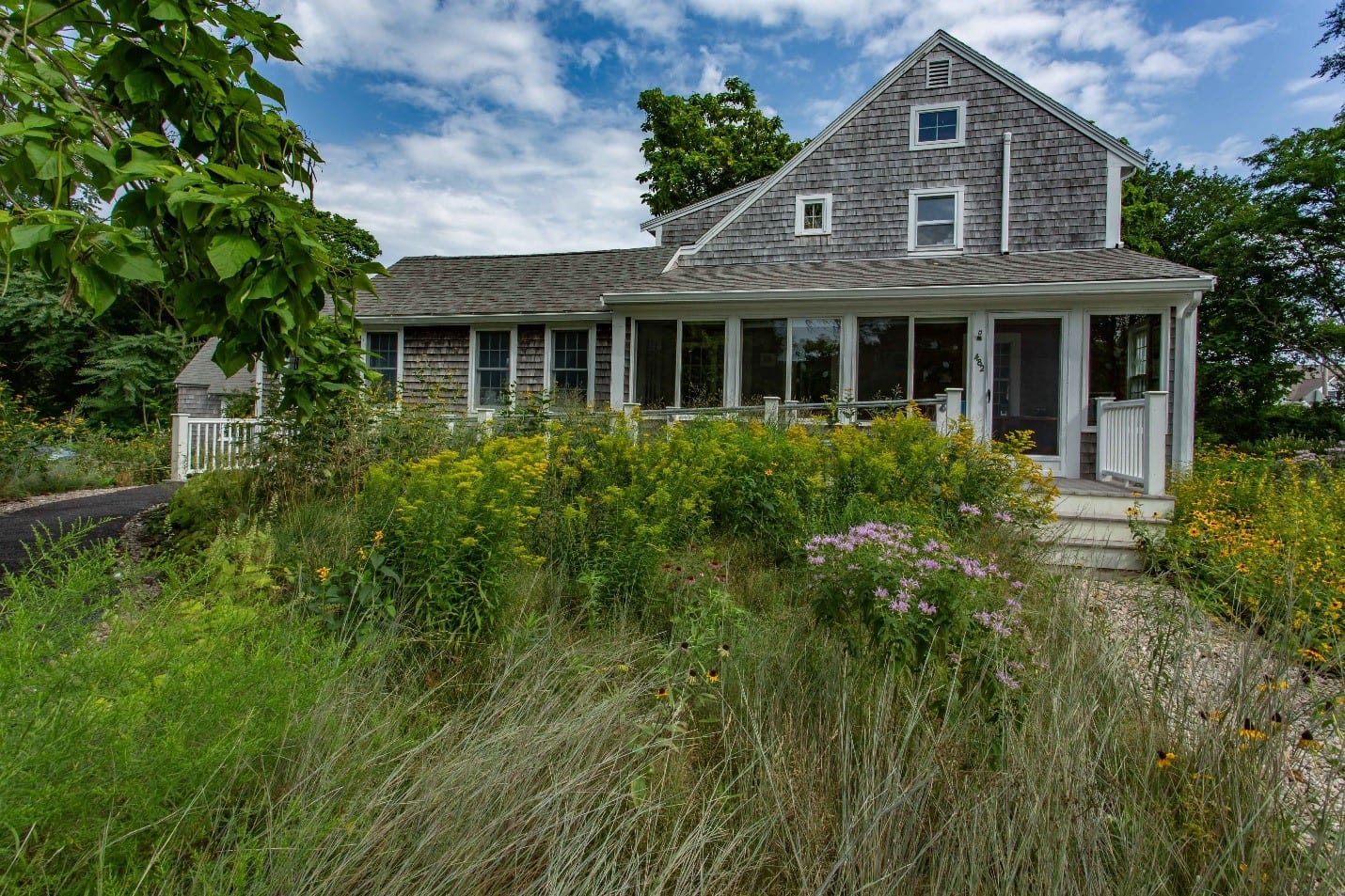
Our little meadow in late summer is flowering anise-scented goldenrod, ox-eye sunflowers, and wild bergamot. We don’t deadhead and leave all seed heads for birds and leave the leaves and stems for overwintering insects like our native bees.
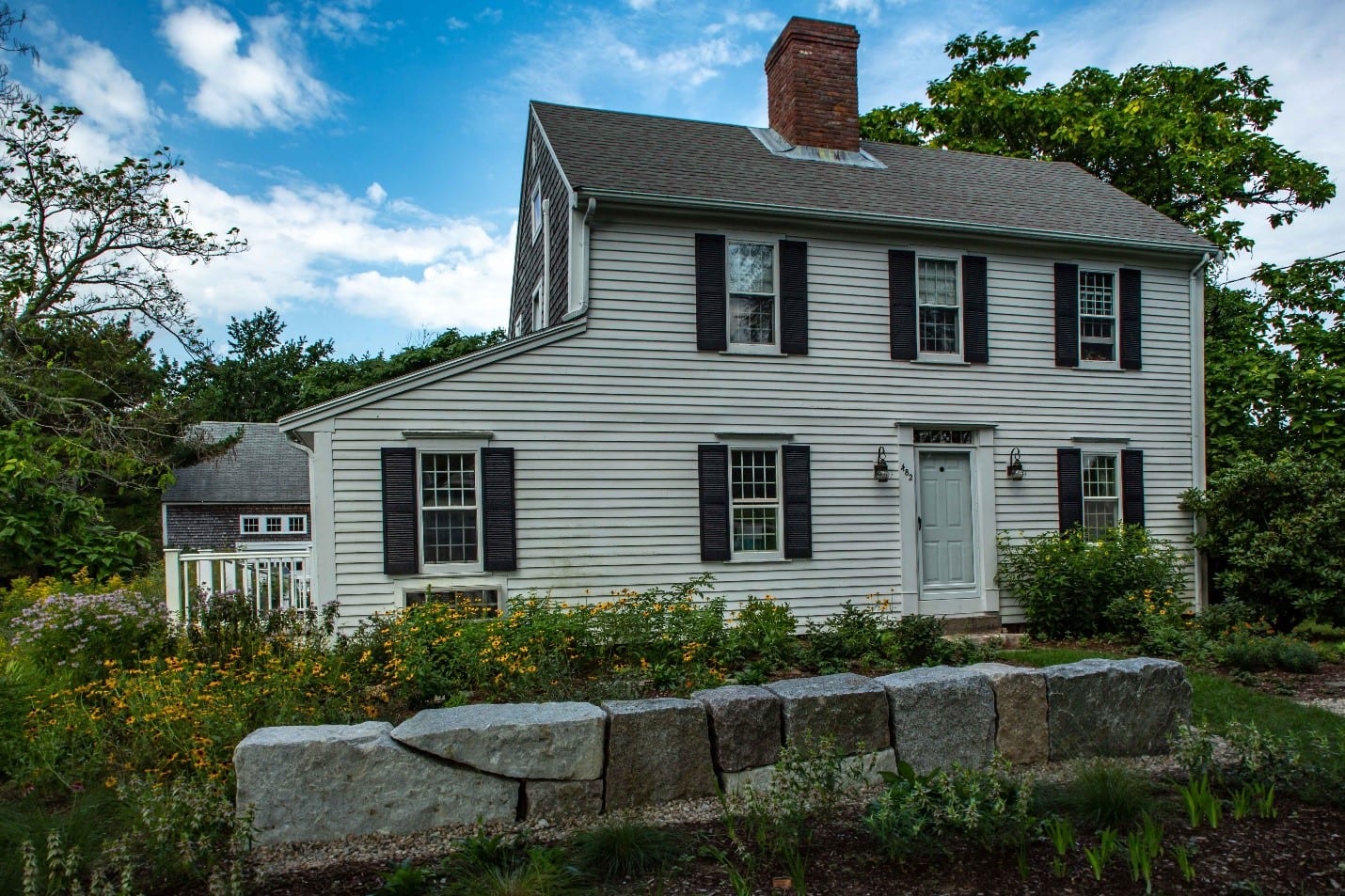
A stone wall anchors the garden design and was crafted for APCC by New England Stoneworks. It is made of repurposed granite block from old bridge abutments. We’re told part of the Longfellow Bridge is here.

Also part of the living landscape, APCC’s “repurposed edible garden” is our way of advocating for growing food locally, displaying perennial edibles, and reusing found items to be eco-friendly, virtually cost-free, fun, and creative!
About the Author
 Kristin Andres is the Associate Director for Education & Informational Services for the Association to Preserve Cape Cod (APCC), an environmental advocacy organization. Before joining APCC as a staff member, she worked for the town of Chatham as its first Conservation Agent for more than 15 years. In her role at APCC, Kristin helps promote eco-friendly land care practices through educational programming and the demonstration garden, which dovetails with APCC’s focus areas of water quality, habitat protection, sustainability, and climate change.
Kristin Andres is the Associate Director for Education & Informational Services for the Association to Preserve Cape Cod (APCC), an environmental advocacy organization. Before joining APCC as a staff member, she worked for the town of Chatham as its first Conservation Agent for more than 15 years. In her role at APCC, Kristin helps promote eco-friendly land care practices through educational programming and the demonstration garden, which dovetails with APCC’s focus areas of water quality, habitat protection, sustainability, and climate change.
***
Each author appearing herein retains original copyright. Right to reproduce or disseminate all material herein, including to Columbia University Library’s CAUSEWAY Project, is otherwise reserved by ELA. Please contact ELA for permission to reprint.
Mention of products is not intended to constitute an endorsement. Opinions expressed in this newsletter article do not necessarily represent those of ELA’s directors, staff, or members.


